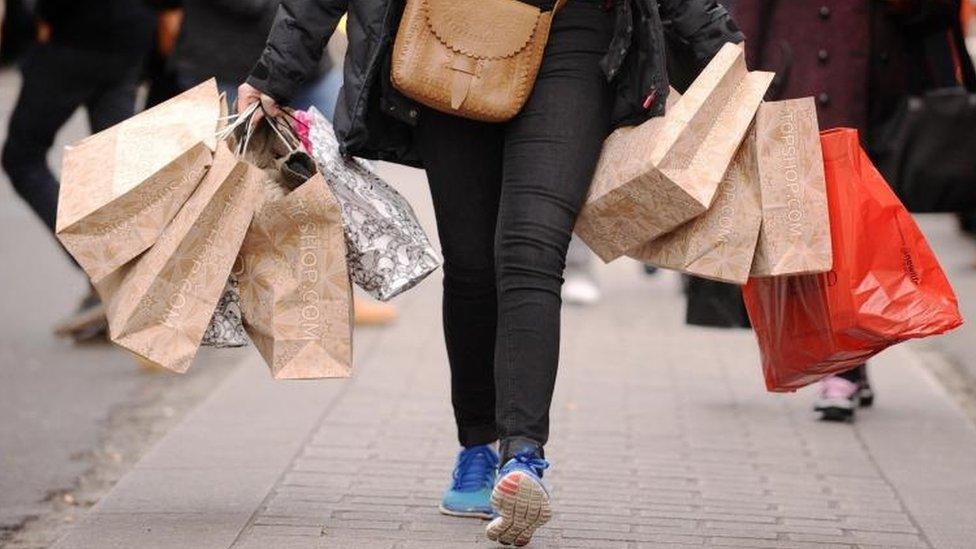An Indian summer causing an economic chill
- Published
- comments

The recent mild weather has put off shoppers from buying winter clothes, retailers say
For the second time this year we have mild deflation - or prices falling at an annual rate of 0.1%.
Does this mean the risk has increased of pernicious deflation - or endemic price falls that would dissuade us from spending and investing today, in the hope of picking up bargains tomorrow?
Are we on the brink of much lower growth, lower wage rises and an increase in the real (or inflation-adjusted) burden of the country's huge debts?
Certainly it would be foolish to discount this risk as nugatory, but also to overstate it.
The new trend that matters, the main contributor to inflation going from zero (or "noflation") to negative, is that clothing and shoe prices rose at their slowest rate between August and September since 2008.
To be clear, clothing prices are not falling. But a pronounced slowdown in their rate of growth - from 4% to 2.8% - failed to offset the deflation we've experienced for some time in food and energy.
So could this softness in the clothing market be suggestive of a disturbing weakening in the economy - at a time when much of the rest of the world, especially China and the emerging economies, are experiencing marked slowdowns?
Well I have talked to major clothing retailers this morning and they largely blame this erosion in their pricing power on our Indian summer.
When you can go outside in a T-shirt, as was possible in London this morning, people aren't buying winter coats or jumpers.
But there are other signs that growth may be moving down a gear: unemployment has stopped falling; surveys of service companies and manufacturers suggest the last three months of the year may see a gentle reduction in the rate of expansion.
None of this means the recovery is over.
The return to mild deflation is probably not the canary in the coalmine, squeaking "recession now".
But it does tell us that growth remains fragile.
And it also suggests that although the governor of the Bank of England may be right that the decision on whether to end the era of almost-zero interest rates may come into sharper focus at the end of the year, he and his colleagues are likely to delay that first rise in the cost of money for some months yet.
PS: John McDonnell and Jeremy Corbyn may be among the small number celebrating signs of a weakening economy - in that maybe it makes their flip-flopping on whether to support the government's deficit-reduction legislation seem a bit less arbitrary and capricious.